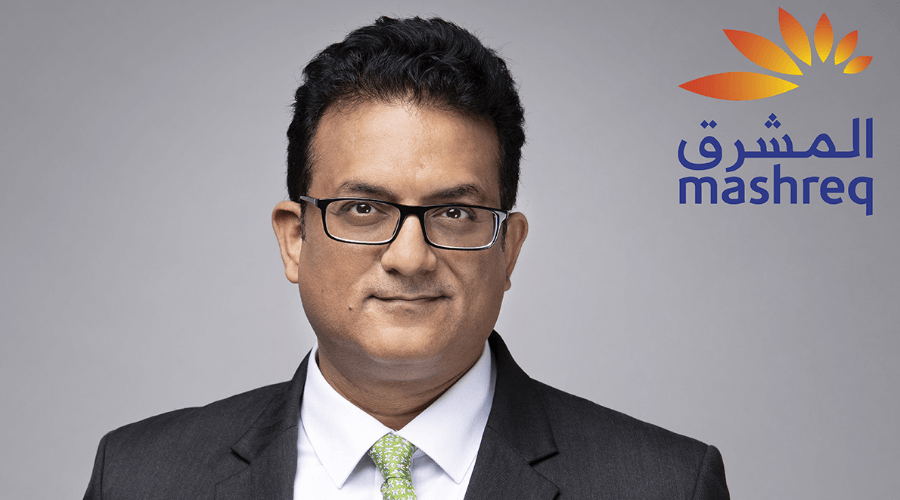How to create a fintech startup that will thrive

Kartik Taneja is the executive vice president, head of payments at Mashreq Bank
Fintech startups are becoming increasingly commonplace in our financial markets, tapping into the vast opportunities inherent within the digital economy. Yet behind the headlines of unicorns and decacorns, all small companies and new ideas face challenges of trust and customer adoption. Sometimes the assumptions that are made turn out to be over-optimistic, and sometimes the solution is not good enough to be viable. Equally, banks are waking up to the idea of co-opetition with these startups that often bring clever solutions for very real and specific problems.
Creating a new proposition during times of considerable economic uncertainty, with rising inflation and increased borrowing costs, is not for the faint-hearted. Those who make the leap need to immediately adopt a sharp and unrelenting focus on the customer they set out to serve. A fintech that solves a customer’s genuine pain point will gain traction and secure a business that delivers value and growth – and the latter attribute is critical.
Right now, there is a significant opportunity for fintechs that innovate in payments and lending (including buy now pay later), a sub-sector that is showing rapid growth. Others include wealth-tech, insurtech, regtech, cyber security and data. For fintechs in these sectors to gain attention and traction, they need to reach out to the wider ecosystem.
Collaboration is key
Fintech startups must relentlessly focus on growth through partnerships, tactics, segmentation, advertising and collaboration. To gain and maintain their position in the market, fintechs have the opportunity to participate across the open banking ecosystem. Mainstream banks provide partnership opportunities, with the most forward-looking banks forging relationships with scores of fintechs in a variety of domains, ranging from payments to lending to cyber security.
Traditional banks also have the ability to provide innovators with a safe environment for development and testing through the provision of special platforms to road-test their solutions, develop a revenue stream from their operations and sometimes secure equity and debt funding as well. Ahead of the curve, Mashreq launched the region’s first API developer portal in September 2021. It sets out to encourage the development of new and innovative digital journeys and experiences for consumers – which is right at the heart of the Banking as a Service (BaaS) revolution.
Like all SMEs, fintechs must also invest in their people – but even more so because of the accelerated pace of change and increasingly saturated market. The difficulty for the fintech startup is that there simply aren’t enough experienced people with the right skills in the talent pool. The best advice for those who manage to hire incredible talent is to invest in them and their capabilities with the same vigor that you invest in your own future success. One senior engineer can solve problems faster than many junior engineers, and a senior, rounded finance person can process due diligence faster.
Plan for turbulence
Of course, to invest in people and all of the other aspects of building a company, fintech startups need to have clear visibility of their burn rate and understand when and where the next round of funding is coming from. A properly developed mitigation strategy - a plan B and C - is also highly advisable, particularly given the nature of the fintech world. Exciting and transformational as it is to be in the middle of a generational opportunity of growth, there are wider forces at play that could rapidly knock startups off course.
Those forces include the precarious nature of the post-pandemic recovery, geopolitical forces and significant economic uncertainty.
The good news for startups in the UAE and wider GCC is that Gulf countries are seeing a steady return to stable economic growth and a highly educated, youthful and digitally fluent demographic. Companies that can take advantage of these factors and navigate the pitfalls face the real potential to scale in the mid-term and build a sustained runway for the next five to 10 years.
However, fintech startups, particularly those operating in the open banking space, are also struggling as a result of protectionism demonstrated by some banks, who still regard them with a degree of suspicion and as a threat rather than an opportunity. Working with innovators and entrepreneurs to support the burgeoning fintech ecosystem improves the overall customer experience from every touchpoint.
Fintechs who resist the temptation to chase too many opportunities, and who can relentlessly focus on the specific solution that their proposition delivers, have the ability to participate in what may prove to be the beginning of a golden age of fintechs. Some estimates say over 800 startups will be set up in the UAE in 2022, but the opportunity could be for multiples of that in the near term.
That exciting future is increasingly well supported by a national and regional regulatory approach that recognises that fintechs are required to bring vitality to the financial sector – and that small companies need to be allowed to experiment. There are growing signs of supportive regulations and policies that allow experimentation and new business models to evolve. Regulatory sandboxes are an important part of the equation. The UAE boasts a selection of well-run environments, including the ADGM RegLab and the Dubai Financial Services Authority’s Innovation Testing Licence Programme.
By working with governments, engaging with peers and focusing on the most important of things – customer happiness - today’s fintech startups have every opportunity to become tomorrow’s unicorns.


